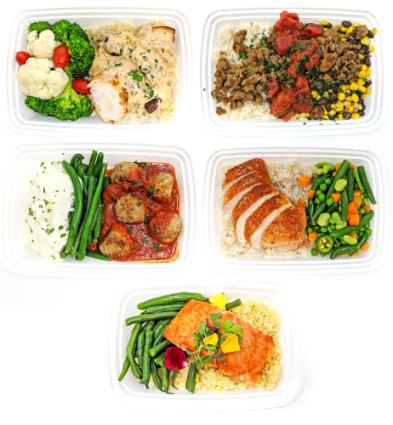One year ago, Mike Hasson began Epiphany Meal Prep in Redlands, a business that prepared and delivered one week’s worth of pre-cooked meals to clients.
A personal chef, Hasson was targeting people who don’t cook, usually because they’re too busy. He believed that was a better long-term business plan than going to people’s houses and cooking their meals for them.
Several months ago, Hasson did what the owners of a lot of start-up businesses do: he merged with a company similar to his, not because Epiphany Meal Prep wasn’t doing well but because he sensed a merger would lead to faster growth.
The result was Shape Meal Prep Club, a larger version of Epiphany Meal Prep, also based in Redlands. It employs eight people and delivers about 1,000 meals a week, according to Hasson.
Hasson and his new business partner, Ernesto Febres, spoke with IE Business Daily last week about how their merger came about, how their new business is performing and where they hope to be one year from now.
Q: Are you profitable yet?
MIKE HASSON: We’re turning a small profit. I don’t want to say how much, but we are profitable. Epiphany Meal Prep was breaking even before the merger happened.
Q: You’ve changed your target market, but your business model is basically the same as it was before the merger. Do you still have confidence in that approach?
A: Yes. We have low overhead and we’re delivery only, which helps keep our costs down. I think the business model is holding up well.
Q: When you started Epiphany your demographic was people who were too busy to cook their own meals. Wanting to eat healthy was a factor, but convenience was the primary appeal. Shape Meal Prep Club is specifically going after people who eat healthy and work out regularly. Why the change?
MH: It’s a more specific niche. That makes it easier to target and market, and so far it seems to be working. But it takes time for something like this to really get traction.
Q: Why do you think it’s working?
MH: Because people are a lot more aware of what they should be eating. They know that fast food is bad for them, and that it’s only getting worse.
Q: Where would Epiphany Meal Prep be today if you hadn’t merged?
MH: I think it would be making money, but it would not be accelerating as fast as it is now. With Epiphany, the growth was going to be a lot more gradual.
Q: Exactly how did the merger come about? Did it happen all at once?
MH: No, it was gradual. We got to know each other because we were working out of the same kitchen in Redlands. We were doing the same thing, basically the same business, so it made sense to merge.
ERNESTO FEBRES: It’s hard to describe. There came a point where we both knew it was the right thing to do. When I was running my own business I was having to do too much. I didn’t have enough free time. I knew Michael would handle the management and I would handle the marketing.
Q: You’re still based in Redlands. Are you still delivering in a 30-mile radius from there, or have you moved beyond that?
MH: That’s our primary market, but if things keep going well, in the next three to six months we’re hoping to move beyond that. The Inland Empire will always be our hub, but we want to get into Los Angeles and Orange counties. We’re looking at Claremont, Pomona and Anaheim Hills. At some point we’d like to get into San Diego.
Q: Did the merger affect your price structure?
MH: Yes, we lowered it. It used to be $5 to $14 per meal, now it’s $5 to $12. And we deliver on Sundays and Mondays, so people have their meals at the start of the week. Epiphany only delivered on Sunday.
Q: How are you marketing yourself?
MH: Social media, and we’re also trying to establish a network among personal trainers. They can recommend us to their clients, who are the people we’re going after.
Q: Is there anyone you’re in direct competition with, anyone in the Inland Empire that’s doing precisely what Shape Meal Prep Club is doing?
MH: Not that we know of. There are a few people we consider competitors, but I don’t think there’s anyone doing exactly what we’re doing.
Q: You never worked with each other before. How have you approached operating a business together?
EF: We both have our strengths and we try to concentrate on those. It helps that we both ran a small business before we got together. My strength is marketing, so I focus mostly on that. Mike’s strength is managing the kitchen.
Q: Have you changed your marketing approach since you first went into business?
EF: Yes, I’m trying to be more aggressive than i was when I first started. I was working mostly online, and at one point I realized that I wasn’t being aggressive enough. I was waiting for the clients to come to me instead of going after them. So I changed that.
Q: Where would you like to be one year from now?
MH: I’d like to be twice as large, meaning twice as much staff as we have now. I would also like to double the number of meals we deliver every week, and have something established in Los Angeles County and Orange County.
 IE Business Daily Business news for the Inland Empire.
IE Business Daily Business news for the Inland Empire.


